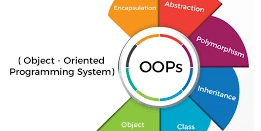Dev
2M
43

Image Credit: Dev
Object-Oriented Programming in Java — The Heart of Modern Development
- Object-Oriented Programming (OOP) is a programming paradigm that organizes software design around objects rather than just functions and logic. Java, one of the most widely used programming languages, is built entirely on OOP principles, making it a powerful tool for creating scalable, modular, and maintainable applications.
- OOP in Java is based on classes and objects. A class is a blueprint or prototype defining the structure, attributes, and methods, while an object is an instance of a class with actual memory allocation.
- OOP has four pillars: encapsulation, inheritance, polymorphism, and abstraction. Encapsulation bundles data and methods into a single unit, promoting data protection. Inheritance allows classes to inherit properties and behaviors from other classes. Polymorphism enables different classes to respond to the same method call in different ways. Abstraction hides implementation details and exposes only essential features.
- Java is considered a pure object-oriented language, whereas Python and C++ support both object-oriented and procedural programming. OOP in Java is the backbone of robust, scalable, and maintainable software design.
Read Full Article
2 Likes
For uninterrupted reading, download the app